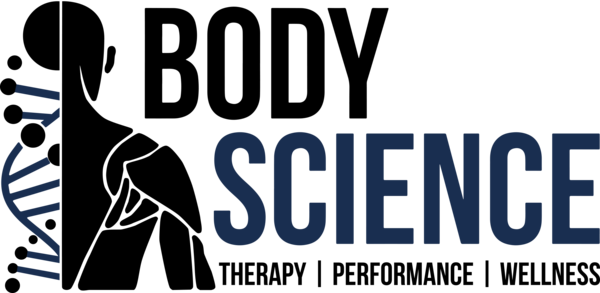
Education plays a pivotal role in physiotherapy, not only in enhancing the skills of professionals but also in empowering individuals receiving care. A comprehensive understanding of physiotherapy practices helps clients engage more actively in their recovery journey, fostering collaboration between them and healthcare providers. In this blog, we will explore the significance of client education in physiotherapy, detailing how it influences treatment outcomes, the various topics covered during sessions, and the tools used to enhance client knowledge.
What Is The Role Of Client Education In Physiotherapy?
Client education in physiotherapy is essential for promoting effective treatment outcomes and empowering individuals to take an active role in their recovery. It involves informing clients about their conditions, explaining the purpose and technique of exercises, and providing strategies for prevention and self-management. Key aspects of client education include understanding the benefits of prescribed exercises, learning how to perform them correctly, and recognizing the importance of adherence to the rehabilitation plan.
This education often extends to introducing clients to a broader toolkit of interventions — from manual therapy and corrective exercise to neuro-modulation approaches such as Dolphin Neurostim MPS and neuromuscular re-patterning methods like NeuroKinetic Therapy. By understanding how these treatments complement exercise and education, clients can better appreciate the value of an integrated physiotherapy model.
Overall, client education ensures that individuals are well-informed about their condition and treatment, enabling them to make informed decisions and actively participate in their recovery process.
What Topics Are Most Commonly Covered During Physiotherapy Sessions?
During physiotherapy sessions, several key topics are commonly addressed to ensure clients are well-informed and engaged in their treatment. These topics include the nature and cause of the individual’s condition, the goals of the treatment plan, and the specific exercises and techniques to be used. Other areas of focus are pain management strategies and lifestyle modifications to prevent future issues.
| Condition Overview | Clients are provided with a detailed explanation of their identified condition, its causes, and the expected progression. |
| Treatment Goals | Clear objectives are set to guide the rehabilitation process, helping clients understand what they are working towards. |
| Exercise Instruction | Detailed guidance on how to perform specific exercises, including repetitions, duration, and form, is essential to ensure effectiveness. |
| Pain Management | Strategies to manage pain, such as, neuro-modulation techniques like Dolphin Neurostim MPS are used, as well as education on appropriate home exercise programs, and occasionally the use of heat or ice, and referral to a pharmacist to discuss topical pain relieving options. Our goal is to help regulate nervous system activity and reduce persistent pain. |
| Lifestyle Modifications | Advice on changes in daily activities, posture, or ergonomics that can prevent further issues is provided. |
| Self-Management Techniques | Clients are taught how to monitor their progress and make necessary adjustments to their regimen. |
| Home Exercise Programs | Instructions for exercises to be done at home complement in-clinic sessions and promote continued improvement. |
| Equipment Use | Information on how to use any necessary equipment, such as braces or supports, is provided. |
In summary, these topics ensure that clients have a comprehensive understanding of their treatment plan, enhancing their ability to participate actively in their recovery.
What Tools or Resources Do Physiotherapists Use to Educate Clients About Their Condition and Treatment?
Physiotherapists utilize a variety of tools and resources to educate clients about their condition and treatment, ensuring they have a thorough understanding of their rehabilitation process. These tools include visual aids, digital platforms, and personalized exercise plans. Educational materials like brochures and videos are also commonly used to enhance client knowledge.
- Visual Aids: Diagrams and models of the human body help clients visualize their condition and understand the mechanics involved in their treatment.
- Digital Platforms: Apps and online portals provide access to exercise videos, progress tracking, and appointment scheduling, enhancing client engagement.
- Brochures and Handouts: Printed materials offer detailed information on conditions, treatment plans, and self-care strategies for easy reference.
- Videos: Demonstrations of exercises and treatment techniques in video format help clients grasp complex movements.
- Personalized Exercise Plans: Tailored exercise regimens address the specific needs and goals of the client, promoting adherence and progress.
- Workshops and Seminars: Group sessions provide opportunities for learning and interaction with both professionals and peers.
- Follow-up Calls or Emails: Regular communication ensures clients stay on track and allows for timely adjustments to the treatment plan.
Some options also incorporate live demonstrations of advanced methods such as NeuroKinetic Therapy, which allows clients to see how muscle imbalances are assessed and corrected through neuromuscular re-patterning. In brief, these tools and resources empower clients by enhancing their understanding and involvement in the physiotherapy process.
How Can People Educate Themselves About Their Own Condition and Physiotherapy Treatment?
Individuals can empower themselves by learning more about their condition and physiotherapy treatment through various methods. Accessing reputable online resources, attending educational workshops, and seeking guidance from healthcare providers are effective ways to gain knowledge. Engaging in self-education fosters a proactive approach to recovery and health management.
| Online Research | Utilizing credible websites and resources for information on specific conditions and physiotherapy techniques. |
| Workshops and Webinars | Attending sessions led by healthcare providers to gain insights and ask questions. |
| Consulting Healthcare Providers | Scheduling consultations to discuss concerns, seek advice, and clarify treatment goals. |
| Reading Books and Articles | Engaging with literature focused on physiotherapy and related health topics. |
| Participating in Support Groups | Joining groups to share experiences and learn from others with similar conditions. |
| Utilizing Apps | Using mobile apps designed to provide exercise instructions and track progress. |
| Listening to Podcasts | Gaining insights from experts and practitioners through audio discussions. |
| Watching Educational Videos | Viewing demonstrations and talks to enhance understanding of treatment methods. |
Overall, these methods provide individuals with the knowledge they need to take charge of their health and recovery journey.
Will Every Physiotherapy Session Have an Education Component?
Every physiotherapy session is likely to include an educational component, as understanding one’s treatment plan is crucial for effective recovery. The education provided can vary based on the individual’s condition and progress, but it generally covers topics such as exercise techniques, lifestyle adjustments, and pain management strategies.
In many cases, education also involves explaining why specific interventions — such as manual therapy, strengthening programs, or targeted neuromuscular retraining through NeuroKinetic Therapy — are being applied. This component ensures clients are aware of what each session entails and how it contributes to their overall recovery. Physiotherapists often tailor educational content to address specific questions or concerns, facilitating a customized approach to care.
In summary, integrating education into each session enhances client engagement, empowers informed decision-making, and supports successful rehabilitation outcomes.
What Are the Drawbacks of a Physiotherapy Plan That Doesn’t Incorporate Education?
A physiotherapy plan lacking an educational component can lead to several drawbacks, including reduced client engagement and suboptimal treatment outcomes. Without proper education, individuals may not fully understand their condition or the purpose of their treatment, potentially leading to non-compliance and slower progress. This can also result in increased frustration and a lack of motivation to continue with therapy, ultimately affecting recovery.
- Lack of Understanding: Clients may struggle to comprehend their condition and the rationale behind their treatment plan.
- Non-Compliance: Without clear instructions and explanations, clients may not adhere to prescribed exercises or recommendations.
- Reduced Motivation: A lack of awareness about the benefits of treatment can diminish enthusiasm and commitment.
- Increased Frustration: Misunderstanding or confusion about the process can lead to dissatisfaction and frustration.
- Slower Progress: Inadequate education can result in ineffective practice of exercises, slowing the recovery process.
- Poor Self-Management: Clients may lack the skills to manage their condition independently, relying excessively on professional support.
- Higher Risk of Recurrence: Without knowledge of preventive measures, clients might face recurring issues.
To sum up, incorporating education is vital for empowering clients, enhancing engagement, and optimizing treatment outcomes.
What Our Clients Are Saying
At Body Science Therapy, patients consistently describe their experience with words like “caring,” “professional,” and “life-changing.” Our team is known for deep expertise, clear communication, and a holistic, healing approach. From a warm, supportive environment to effective treatment and thorough explanations, our patients feel heard, empowered, and truly in the right place for recovery.
At Body Science Therapy, you’re not just another appointment — you’re seen, heard, and cared for by a team that treats you like family. With hands-on, personalized care, deep expertise, and a genuine commitment to helping you heal, our clinicians go beyond symptoms to create real, lasting change. Whether it’s finally getting answers, regaining energy, or feeling like yourself again, we’re here to help you feel whole.
Stop Letting Pain Win
Education is a cornerstone of effective physiotherapy, empowering individuals to actively participate in their recovery journey. By understanding their condition and treatment plan, clients can make informed decisions and adhere to their rehabilitation regimen.
At Body Science Therapy in Mississauga, this education is paired with an integrated treatment model that combines manual therapy, exercise prescription, and movement retraining with advanced tools such as Dolphin Neurostim MPS and NeuroKinetic Therapy. This comprehensive approach ensures that each client receives care tailored not only to their condition but also to their long-term health and well-being. Contact us today to get started!
Frequently Asked Questions
How Does Education Improve Physiotherapy Outcomes?
Education enhances outcomes by equipping clients with the knowledge to actively engage in their treatment, leading to better adherence and progress.
What Should I Expect in My First Physiotherapy Session?
Expect an initial assessment to understand your condition, followed by a discussion of your treatment goals and an introduction to some exercises.
How Can I Maximize the Benefits of Physiotherapy?
Stay consistent with your exercises, communicate openly with your physiotherapist, and incorporate any recommended lifestyle changes.
Why Is Client Education Important in Physiotherapy?
It ensures clients understand their condition and treatment plan, promoting adherence and empowering them to manage their recovery effectively.
Are Home Exercises Necessary Between Physiotherapy Sessions?
Yes, home exercises are crucial for maintaining progress and complementing the therapy received during sessions.
